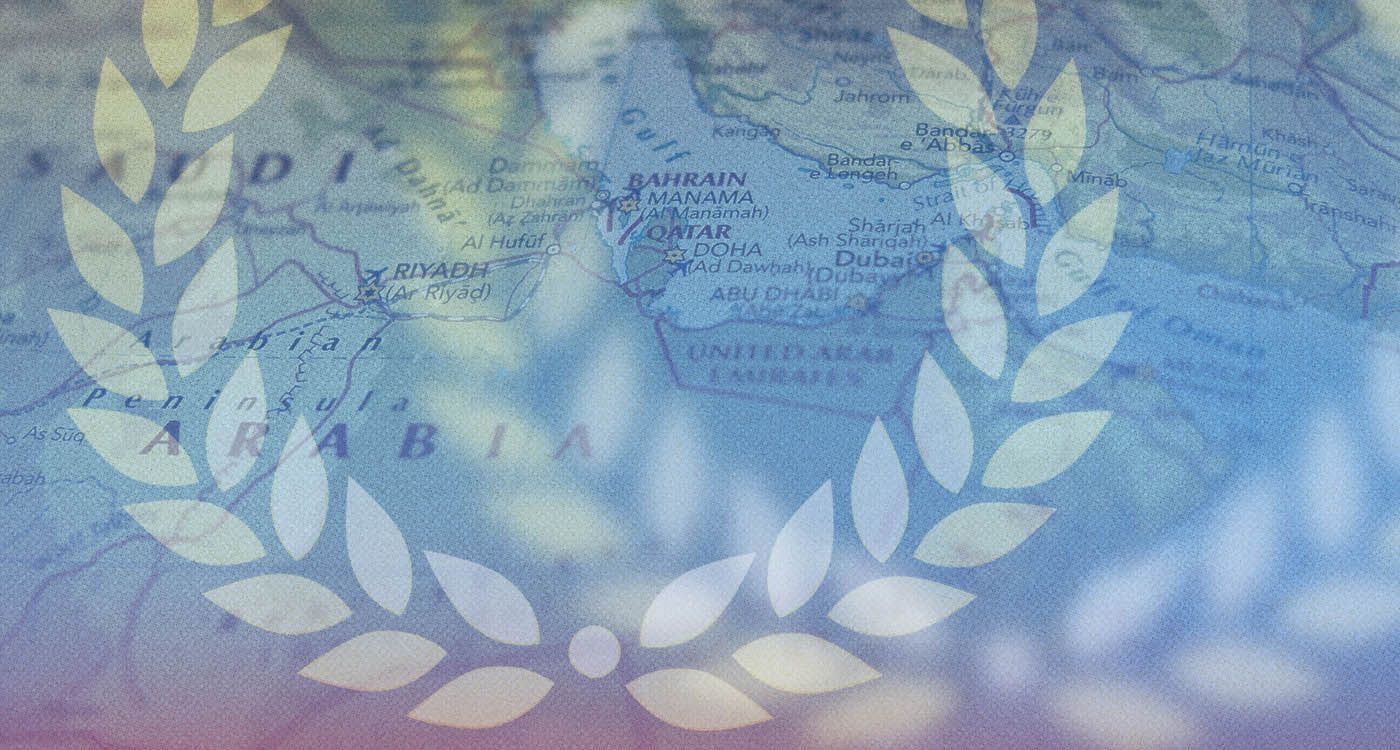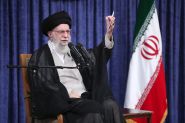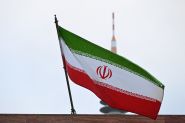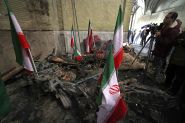- Home
- Middle East
- From Syria to Ukraine: The Gulf as the New Hub of Global Diplomacy (2/2)

©This is Beirut
As negotiations to end the Israel-Hamas war resume and talks over Iran’s nuclear program continue, the Gulf states are attracting unprecedented international diplomatic attention. From Muscat to Doha, and from Riyadh to Abu Dhabi, the contours of the Gulf’s growing prominence are taking shape.
On Tuesday, May 13, US President Donald Trump was received with great ceremony in Riyadh by Saudi Crown Prince and de facto ruler Mohammed bin Salman (MBS), marking the first stop on a tour of immense geopolitical and economic significance. Economically, Trump brokered massive deals—$142 billion with Saudi Arabia, followed by $96 billion with neighboring Qatar—before moving on to the United Arab Emirates (UAE).
Yet, it was his handling of three major crises—Gaza, Syria and Ukraine—that attracted the most international attention. After coaxing Israel back to negotiations over the Palestinian enclave, the White House facilitated efforts toward a Russia-Ukraine summit in Istanbul—ultimately aborted—capping a series of behind-the-scenes talks that began in Riyadh.
Most notably, the Trump administration lifted US sanctions on Syria, effectively granting interim president Ahmad el-Chareh the green light to begin rebuilding. This underscored the Gulf’s rising global influence. While the Israel-Hamas conflict remains largely managed by Doha’s seasoned diplomats within the Gulf Cooperation Council (GCC), the UAE, and especially Saudi Arabia, have taken the lead on the Syrian and Ukrainian fronts.
These two states, like their Qatari and Omani neighbors, enjoy political stability and resource wealth that enable long-term strategic planning. Historically, their influence has relied less on consensus-building and more on the exercise of coercive power—at least, until now.
UAE: From Strategic Caution to Active Intervention
Since its founding in 1971, the UAE has pursued a foreign policy grounded in regional stability and security, closely aligned with the United States and Saudi Arabia, particularly in opposition to Iran and during the Gulf War (1990–1991). For decades, Abu Dhabi’s diplomacy was marked by strategic restraint and deliberate discretion, while simultaneously investing in “soft power,” leveraging the substantial wealth generated by its oil revenues.
The 2011 Arab uprisings marked a turning point. Alarmed by the rise of Islamist movements—chiefly the Muslim Brotherhood—the UAE adopted a more proactive and interventionist posture, supporting regimes and groups opposed to political Islam, notably in Egypt and Libya.
A second shift came in 2020 with the signing of the Abraham Accords, which normalized relations between the UAE and Israel. This unprecedented move heralded a more assertive and pragmatic Emirati diplomacy, which embraces strategic realignment in the name of security, modernization and economic integration in a rapidly evolving region.
Between Economic Power, Soft Influence and Ideological Firmness
Under UAE President and Emir of Abu Dhabi Mohammed bin Zayed Al Nahyan (MBZ), the country combines financial strength, cultural outreach and ideological resolve. Harnessing substantial oil and gas revenues, the UAE has developed an exceptional capacity for influence through strategic investments abroad, technological partnerships, humanitarian diplomacy and active engagement in major international arenas. Its soft power is showcased by hosting landmark events such as COP28 and iconic projects like the Abu Dhabi Louvre and the “Hope” Mars mission.
However, the UAE draws a clear red line against political Islam, breaking with Qatar, which it sees as too conciliatory toward Islamist movements. The UAE’s authoritarian and secular vision of stability has drawn criticism for involvement in Yemen, Libya and Sudan. Its diplomacy, centered in Abu Dhabi, sometimes struggles to build consensus, both internally among the emirates and regionally, particularly with Doha.
Yet, the UAE’s adaptability and strong ties with the US, China and Israel, along with its declared neutrality on complex issues like Ukraine and Iran, make it indispensable. For example, Abu Dhabi facilitated delivery of a letter from Trump to Iran’s Supreme Leader Ali Khamenei in March, helping restart talks. The UAE has brokered prisoner exchanges between Ukraine and Russia. Most notably, Reuters recently revealed secret Israeli-Syrian negotiations mediated by Abu Dhabi earlier this May. Though not resulting in agreement, these talks kept dialogue alive amid Syria’s tensions.
Saudi Arabia: The Awakening of a Giant
While Abu Dhabi played a key role on Syria, Saudi Arabia quickly overshadowed it through the pivotal meeting between Trump and Chareh, illustrating Riyadh’s recent and assertive emergence on the global diplomatic stage.
Since its inception, Saudi Arabia has forged a unique diplomacy at the intersection of vast economic power, religious authority and strategic alliances. The discovery of oil in the 1930s and the establishment of Aramco rapidly elevated the kingdom into a leading global energy player, providing it with a powerful tool of international influence.
Starting in the 1970s, Riyadh channeled its oil wealth into a prestige-driven diplomacy—ranging from international aid and the global funding of mosques to the promotion of Wahhabism, its official ultra-conservative interpretation of Sunni Islam doctrine. As a steadfast Cold War ally of Washington, the Kingdom positioned itself as a pivotal partner of the Western bloc in the Middle East, while adopting a cautious and stabilizing posture within the Arab world. Nonetheless, it largely refrained from taking bold stances on the region’s most contentious issues.
The rise of Mohammed bin Salman (MBS) in the 2010s marked a decisive break. His leadership pushed for regional dominance, forceful military interventions (notably in Yemen) and reshaping the regional order to serve Riyadh’s interests. This transformation reflects a kingdom in profound flux, internationally asserting itself while consolidating domestic power.
Drivers and Limits of a Transforming Saudi Diplomacy
Saudi Arabia now positions itself as a key global player, leveraging three core assets: immense oil wealth, religious custodianship of Islam’s holiest sites and growing geopolitical ambitions. Its multifaceted strategy aims to establish Riyadh as a major international mediator.
This approach is anchored in Vision 2030, MBS’ plan to diversify the economy and modernize the kingdom. The central goal is to strengthen regional influence to attract investment and stabilize the Middle East.
Riyadh hosts mediation efforts on Sudan and Ukraine, organizes summits on Gaza’s reconstruction with partners like France, facilitates discussions on Syria’s post-Assad future, deepens relations with Lebanon’s President Joseph Aoun and slowly warms ties with Israel.
However, this ambition faces significant challenges. Saudi diplomacy is often marred by its interventionist reputation—especially due to the war in Yemen and the blockade against Qatar—and struggles to unify some regional partners, including members of the Gulf Cooperation Council. Internal contradictions also persist between the drive for economic modernization and continued political authoritarianism. As a result, Riyadh’s role often remains limited to providing neutral platforms rather than exercising decisive diplomatic leadership.
Despite growing confidence, Saudi diplomacy remains fragile, caught between asserting power and making compromises. Its future influence depends on balancing regional ambitions, international appeal and domestic stability.
Read more





Comments